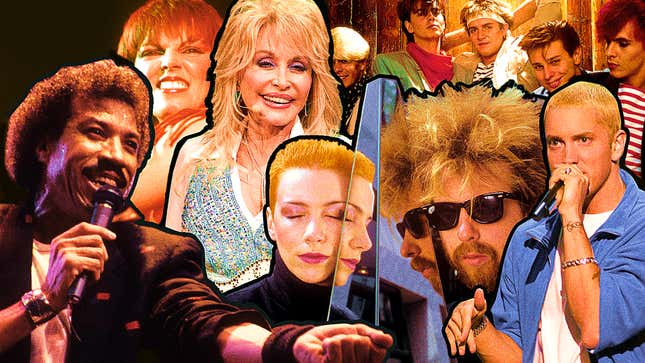
Here’s the open secret about the Rock and Roll Hall of Fame: often, the inductees are honored for an incandescent moment of brilliance, not for full, rich careers. Sure, plenty of Rock Hall inductees had lengthy, interesting careers that continued to evolve after their inductions, but there are just as many acts who are celebrated for the fleeting moments where they seemed invincible, as 2022 inductee Pat Benatar once sang.
The Rock and Roll Hall of Fame class of 2022 is filled with several artists that fit into that category: they had a brief period of time where they were riding high, eventually returning to ground. Even the acts that maintained a cruising altitude inevitably had periods where they sped forward with greater velocity—those are the moments that make a career. Here, The A.V. Club chronicles such moments: the albums that capture the class of 2022 at their peak, that provide a reason why they’ve been inducted into the Rock and Roll Hall of Fame.